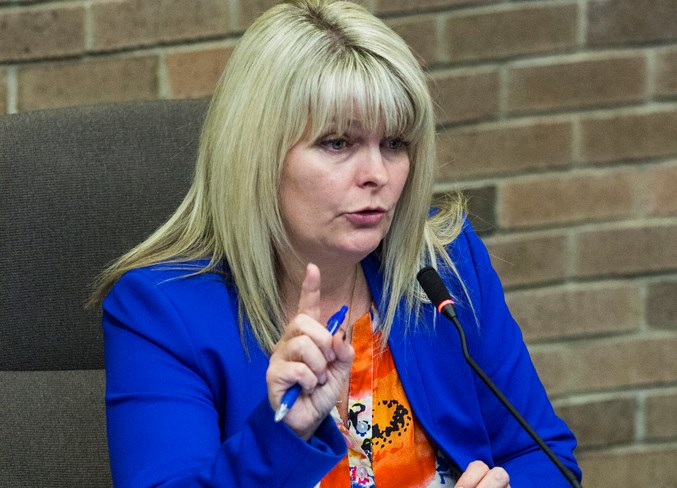St. Albert's draft budget proposes no tax increase, thanks to the introduction of an electrical franchise fee.
City councillors got their first look Monday at the proposed 2019 budget, which shows a zero-per-cent tax increase as well as a miniscule utility rate increase of 0.1 per cent.
Without the introduction of a five-per-cent franchise fee on transmission and distribution of electricity, the city would see an estimated increase of 1.4 per cent on property taxes. The franchise fee begins in 2019 at five per cent and will grow over the next couple of years to 10 per cent at which point the city has estimated it will bring in $3.1 million in revenue.
City manager Kevin Scoble told councillors that along with the introduction of franchise fees – which this year is considered to be a new revenue source – the city also found "cost efficiencies" to kill the tax increase.
“This performance is partly a result of continued realization of cost efficiencies from year to year. Basically, by realizing cost efficiencies, the proposed 2019 tax requirement is 1.4 per cent, consistent with the average historical residential tax increase and well below the 2019 forecast (municipal price index) of 2.6,” Scoble said. The city began using the municipal price index – which looks at inflation on products municipalities typically consume – last year.
Scoble said the city manager's office was able to lower its budget by 7.5 per cent this year because of cost efficiencies, but added he isn't aware of the exact savings found in other departments.
Although the draft budget shows no tax increase, that number could easily increase during the budget process if council decides to fund more projects. Right now a storefront library option is unfunded and Mayor Cathy Heron said she anticipates the conversation around funding it to be “a big one.”
She said council might make tweaks to the capital budget and move some things around.
“I personally would have liked to see Millennium Park funded, but it's not funded. That makes me sad. We have already spent a great deal of money with the place-making exercises and getting a large amount of public input on this plan, and to not do anything seems like a waste,” Heron said.
She said going into the budget process, council did not direct the city manager as to what tax increase they would find appropriate – and now it falls to council to introduce a tax increase.
“Politically, sometimes it's easier to take a high budget and take things out than to go the other way,” Heron said.
She said she worries with no increases they may be setting the city up for a massive infrastructure deficit.
“It might be fine for this year and this year’s tax bill but are we just going to be hurting ourselve ... two or three years from now. Those will be where my questions will sit,” Heron said.
Financial sustainability uncertain
Despite the new streams of income and cost efficiencies, Scoble said the city needs more revenue streams if it wants to keep tax increases low.“To sum up, things are not bad at the moment and there are further opportunities for further efficiencies in the short term. But in the longer term, the city's financial sustainability could become an issue and we need to be proactive in addressing this in the same short term while we have the opportunity,” he said.
In his presentation to council, Scoble said the electrical franchise fee will only offset a tax increase for one year, as this is the first and only year it will be considered a new source of revenue. After that, the city will need to find other sources of revenue, such as a city utility corporation, to prevent tax increases.
The prospect of such a corporation is under study right now and councillors expect to review a feasibility report and business case in March 2019.
In 2020, the city will start priority-based budgeting, which will help keep costs low and could result in more cost efficiencies that year. In following years, though, Scoble said there is a "good chance" tax requirements will creep upward above 2.5 per cent, closer to the municipal price index.
He added the city may be losing other sources of revenue along the way.
“If other sources of current revenue, such as grants, continue to deteriorate, then there will be even greater urgency to realize new revenue sources,” he said.
“Failing to realize new incremental sources of revenue in the future, councils may have to consider higher tax increases and/or reductions in services and service levels.”
The city will be holding a public open house on the budget at 6:30 p.m. Wednesday evening at Red Willow Place.
BY THE NUMBERS
Municipal price index: 2.65 per cent
Assessment growth from new construction forecasted: 2.5 per cent
Tax for home assessed at $450,000: $3,552 annually or $296 per month
Capital budget repair maintain and replace: 34 projects at $28.3 million
Capital budget growth: 16 projects at $9.1 million
Municipal capital spending recommendation: 50 projects at $37.4 million
Municipal utility capital budget: 11 projects at $8.8 million




